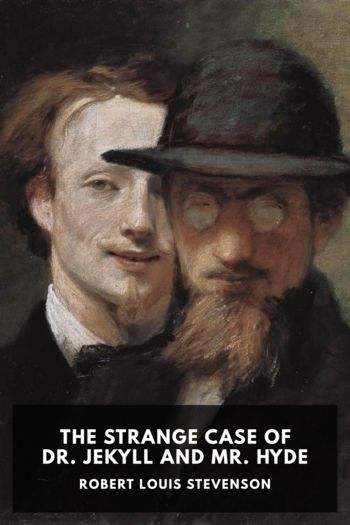Kidnapped - Robert Louis Stevenson (the gingerbread man read aloud TXT) 📗

- Author: Robert Louis Stevenson
Book online «Kidnapped - Robert Louis Stevenson (the gingerbread man read aloud TXT) 📗». Author Robert Louis Stevenson
I say it kept hope alive; and indeed it seemed impossible that I should be left to die on the shores of my own country, and within view of a church-tower and the smoke of men’s houses. But the second day passed; and though as long as the light lasted I kept a bright lookout for boats on the Sound or men passing on the Ross, no help came near me. It still rained, and I turned in to sleep, as wet as ever, and with a cruel sore throat, but a little comforted, perhaps, by having said good night to my next neighbours, the people of Iona.
Charles the Second declared a man could stay outdoors more days in the year in the climate of England than in any other. This was very like a king, with a palace at his back and changes of dry clothes. But he must have had better luck on his flight from Worcester than I had on that miserable isle. It was the height of the summer; yet it rained for more than twenty-four hours, and did not clear until the afternoon of the third day.
This was the day of incidents. In the morning I saw a red deer, a buck with a fine spread of antlers, standing in the rain on the top of the island; but he had scarce seen me rise from under my rock, before he trotted off upon the other side. I supposed he must have swum the strait; though what should bring any creature to Earraid, was more than I could fancy.
A little after, as I was jumping about after my limpets, I was startled by a guinea-piece, which fell upon a rock in front of me and glanced off into the sea. When the sailors gave me my money again, they kept back not only about a third of the whole sum, but my father’s leather purse; so that from that day out, I carried my gold loose in a pocket with a button. I now saw there must be a hole, and clapped my hand to the place in a great hurry. But this was to lock the stable door after the steed was stolen. I had left the shore at Queensferry with near on fifty pounds; now I found no more than two guinea-pieces and a silver shilling.
It is true I picked up a third guinea a little after, where it lay shining on a piece of turf. That made a fortune of three pounds and four shillings, English money, for a lad, the rightful heir of an estate, and now starving on an isle at the extreme end of the wild Highlands.
This state of my affairs dashed me still further; and, indeed my plight on that third morning was truly pitiful. My clothes were beginning to rot; my stockings in particular were quite worn through, so that my shanks went naked; my hands had grown quite soft with the continual soaking; my throat was very sore, my strength had much abated, and my heart so turned against the horrid stuff I was condemned to eat, that the very sight of it came near to sicken me.
And yet the worst was not yet come.
There is a pretty high rock on the northwest of Earraid, which (because it had a flat top and overlooked the Sound) I was much in the habit of frequenting; not that ever I stayed in one place, save when asleep, my misery giving me no rest. Indeed, I wore myself down with continual and aimless goings and comings in the rain.
As soon, however, as the sun came out, I lay down on the top of that rock to dry myself. The comfort of the sunshine is a thing I cannot tell. It set me thinking hopefully of my deliverance, of which I had begun to despair; and I scanned the sea and the Ross with a fresh interest. On the south of my rock, a part of the island jutted out and hid the open ocean, so that a boat could thus come quite near me upon that side, and I be none the wiser.
Well, all of a sudden, a coble with a brown sail and a pair of fishers aboard of it, came flying round that corner of the isle, bound for Iona. I shouted out, and then fell on my knees on the rock and reached up my hands and prayed to them. They were near enough to hear—I could even see the colour of their hair; and there was no doubt but they observed me, for they cried out in the Gaelic tongue, and laughed. But the boat never turned aside, and flew on, right before my eyes, for Iona.
I could not believe such wickedness, and ran along the shore from rock to rock, crying on them piteously even after they were out of reach of my voice, I still cried and waved to them; and when they were quite gone, I thought my heart would have burst. All the time of my troubles I wept only twice. Once, when I could not reach the yard, and now, the second time, when these fishers turned a deaf ear to my cries. But this time I wept and roared like a wicked child, tearing up the turf with my nails, and grinding my face in the earth. If a wish would kill men, those two fishers would never have seen morning, and I should likely have died upon my island.
When I was a little over my anger, I must eat again, but with such loathing of





Comments (0)